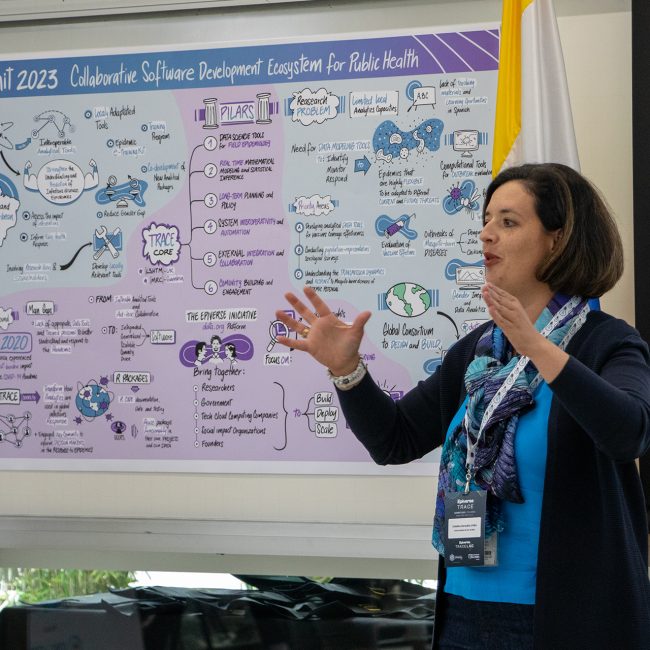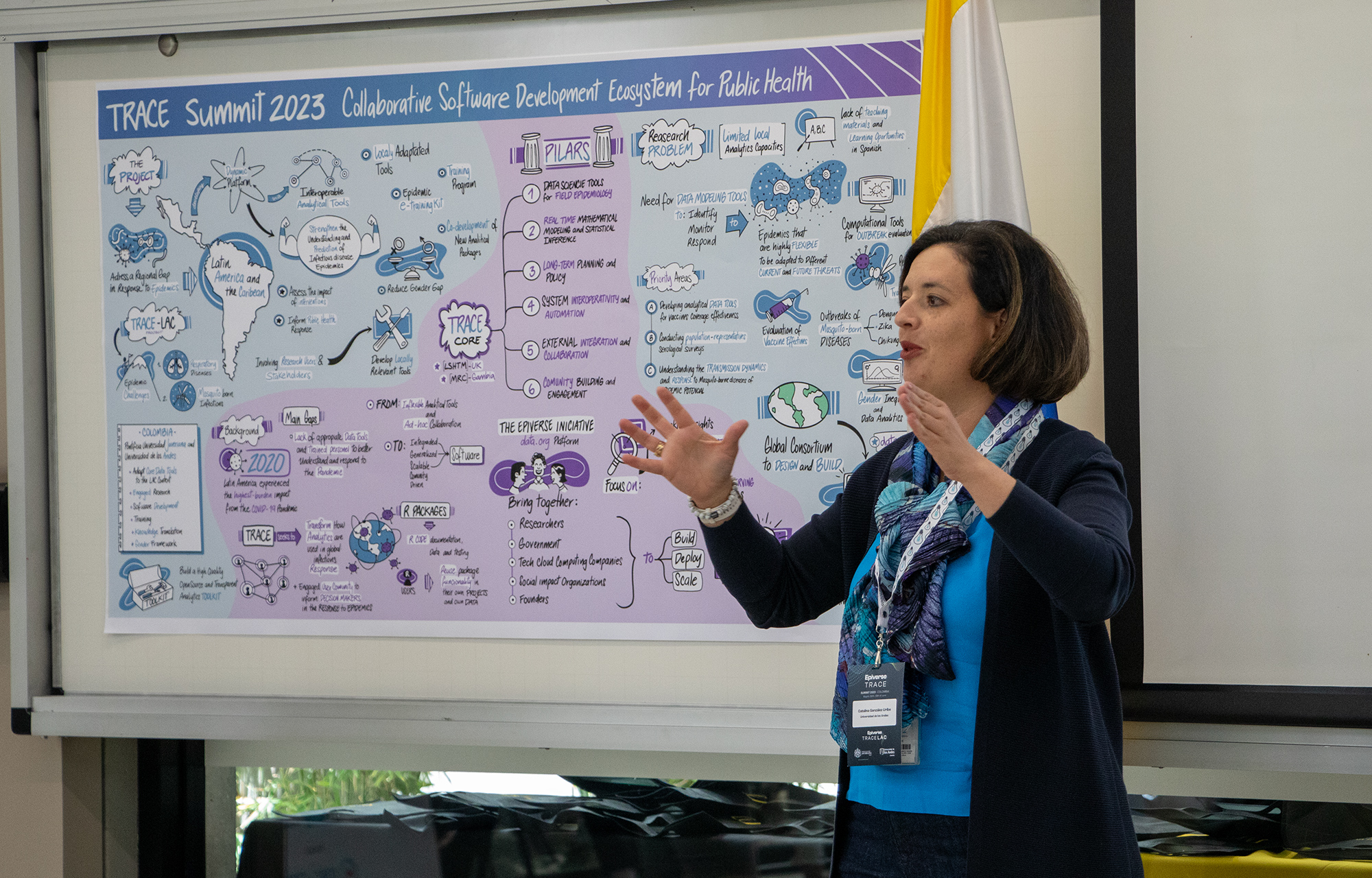The Need for Data Ecosystem Design
Since the Big Data age of 2012, people have begun imagining a data-driven social sector. In this vision, folks imagine a world where the social sector is capable of creating new data-driven digital products for accomplishing its goals. This yearning for a tech-enabled social sector has only grown as the hype around AI has accelerated post-2023. Many efforts focused on creating more digital products in the nonprofit space have launched over the last few decades. However, to date, most have focused on helping one single organization develop a digital solution to one challenge they face. Digital solutions that truly scale have proven to be more difficult to create, largely due to the complex network of stakeholders, data sources, and funding streams needed to achieve them.
In their 2023 report “Accelerate Aspirations: Moving Together to Achieve Systems Change”, data.org noted that “improvement [to the use of data] lies in better coordination between diverse partners and actors, and long-term, well-resourced multi-sector (public, private, academic, SIO, philanthropy) partnerships based on honest and clear conversations about our diverse incentives.” (Mikhailov, 2023) This quote points to the unique challenges of creating scalable digital products in the social sector. If we need an entire ecosystem of actors, datasets, and technologists aligned around a digital product for it to scale, then how do we codify that practice? What skills are needed to do this? And who do we depend on to make it happen?
We hypothesize that a new role is needed for the social sector called the “Data Ecosystem Designer” that is charged with helping digital products thrive and scale by organizing and aligning players within a data ecosystem. Though this role is not yet formalized, we identified and interviewed a number of people in the social sector who are currently informally holding this role. These folks are often largely responsible for the success of digital products that serve a collective or disparate set of actors and often have to invent new, unique ways of sustaining and maintaining their work. The people we spoke with were effectively responsible for recommending, designing, and aligning the ecosystem within which their digital solution would live. Until we better define the set of skills needed and the career paths for this role, organizations will not plan for them, individuals will not train in them, and funders will not recognize the critical importance of funding them. We believe that better defining, training for, and funding this data ecosystem designer role could create a step change in how many digital public goods are available and sustainable in the space.
What is a Data Ecosystem Designer?
Data ecosystem designers are building digital products that have data at their core. As a result, they must have a deep understanding of how that data will be used – which data, by whom, at what times, under what conditions.
Recommendations
-
1
Organizations should acknowledge this role
Almost all folks who have played the role of Data Ecosystem Designer have not had that title. They have been promoted from a Programs Director or a CTO to carry out their functions. One interviewee in our workshop exclaimed “When I read this description, I finally thought ‘oh, THIS is what my role is called!’” By raising awareness of this role and the skills needed to carry it out successfully, organizations building digital public goods can begin planning for it and hiring for it.
-
2
Funders should fund this role
Many philanthropic funders have recognized the need for data scientists and AI researchers in nonprofit digital technology creation and have funded organizations to hire them. A natural next step would be to fund the role of the Data Ecosystem Designer. This funding could come in the form of direct funding for a person to serve in the role or through supporting fellowship programs, like Schmidt Futures’s Technologists for Global Transformation program, that place people with these skills in nonprofits.
-
3
Programs should train this role
ust as data science programs arose over the last decade to round out the skillsets of computer scientists and statisticians holding the title, universities and certification programs should launch programs to train Data Ecosystem Designers. These programs could live at the intersection of technology, policy, and product design programs.

Report
The Data Ecosystem Designer: Designing the Future of Digital Public Goods
A new report defining the role of the Data Ecosystem Designer for social impact organizations.
Acknowledgments
We extend our thanks to the generosity of our interviewees and workshop participants below. We could not have done this work without their insights and experience, and we owe them a debt of gratitude for their work building and scaling digital public goods.
Davis Adieno, Global Partnership for Sustainable Development Data
Aman Ahuja, Fenris Technologies
Caitlin Augustin, DataKind
Zameer Brey, Bill & Melinda Gates Foundation
Shanna Crumley, Mastercard Center for Inclusive Growth
Jon Furr, Strada Education Network
Matt Gee, Brighthive
Brigitte Hoyer Gosselink, Google.org
Elizabeth Grossman, Microsoft Cities
Mark Hansen, Columbia School of Journalism
Pritika Hingorani, Artha Global
Angela Oduor Lungati, Ushahidi
Bilal Mateen, Digital Square
Juan Mateos-Garcia, Google DeepMind
Patrick Meier, Ushahidi
Laura Merson, ISARIC
Charlene Migwe, East and Southern Africa Development Gateway
Oladimeji Mudele, Harvard University
Josh Nesbit, Medic Mobile
Jennifer Oldfield, Global Partnership for Sustainable Development Data
Anupama Shekhar, Microsoft Philanthropies
data.org In Your Inbox
Do you like this report?
Sign up for our newsletter and we’ll send you more content like this every month.
By submitting your information and clicking “Submit”, you agree to the data.org Privacy Policy and Terms and Conditions, and to receive email communications from data.org.
Related Articles
As the social sector has become increasingly digitally mature, new digital public goods for creating social impact have started to appear. Read more
